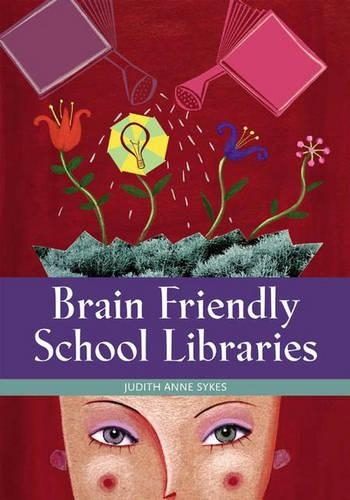
Brain Friendly School Libraries
(Paperback)
Publishing Details
Brain Friendly School Libraries
By (Author) Judith Anne Sykes
Bloomsbury Publishing PLC
Libraries Unlimited Inc
30th December 2005
United States
Classifications
Professional and Scholarly
Non Fiction
Age groups: children
Education / Educational sciences / Pedagogy
027.626
Physical Properties
Paperback
136
Description
This title gives concrete practical examples of how to align school library programs and instructional practice with the six key concepts of brain-compatible learning: increasing input to the brain; increasing experiential data; multiple source feedback; reducing threat; involving students in learning decision making; and interdisciplinary unit planning. This title, Brain Friendly School Libraries, gives concrete practical examples of how to align school library programs and instructional practice with the six key concepts of brain-compatible learning: increasing input to the brain; increasing experiential data; multiple source feedback; reducing threat; involving students in learning decision making; and interdisciplinary unit planning. It includes chapters that summarize the current brain research and current thinking about its implication for instructional practice in the school library media center as well as discusses the work of Ellen Langer (mindful learning), Geoffrey and Renette Caine, Bob Sylwester and other major proponents of teaching with the brain in mind.
Reviews
Sykes, former library specialist turned principal offers an approach to library management and instruction that is based on neuroscience. Highlighted is the concept of the teacher-librarian who can use knowledge of brain research to create a more meaningful learning experience for students and staff. With information for librarians of elementary, middle, and high school, the book gives suggestions for activities that address a variety of learning styles. A list of resources and index are included. * Reference & Research Book News *
[S]ykes' theory warrants attention.Recommended. * Christian Library Journal *
Sykes's recommendations and examples are worth considering.Sykes's ideas should enter a professional development conversation. * Teacher Librarian *
An intelligently written book about the role that the school library can play in exercising students' brains. Rooted in current findings on how the brain processes information, and acknowledging several educative models for learning and Information Power's standards for promoting information-literacy development, Sykes's book offers a vision that every school librarian should consider, if not embrace. The first part reviews what neuroscience tells us about learning. Contributing authors relate those findings to classroom planning, making them understandable to the layperson. Subsequent sections suggest components of the school library program that must be addressed including enriched, intellectual, and emotional environments. Further, readers are offered both theoretical and practical approaches to planning and creating these environments and sample lessons. This book will be a handy desk mate to every school librarian and should be a required text in all school media specialist programs. * School Library Journal *
School librarians looking for new approaches to teaching and learning will find a wealth of information on brain research and its place in the school library in this book.This resource contains research that might come in handy for school librarians who need to justify improving their programs to administrators. * VOYA *
Author Bio
Judith Anne Sykes has gone from a junior high school language arts/drama teacher, an elementary teacher-librarian, to School Library Specialist for the Calgary Board of Education, Assistant Principal and Principal. Judith consults, makes educational presentations, and has published extensivelylocally, provincially, nationally and internationally, including being editor of IMPACT, the professional journal of the Association of Teacher-Librarianship of Canada. She is the author of Library Centre: Teaching Information Literacy, Skills, and Processes K-6 and Action Research: Practical Tips for Transforming Your School Library.
